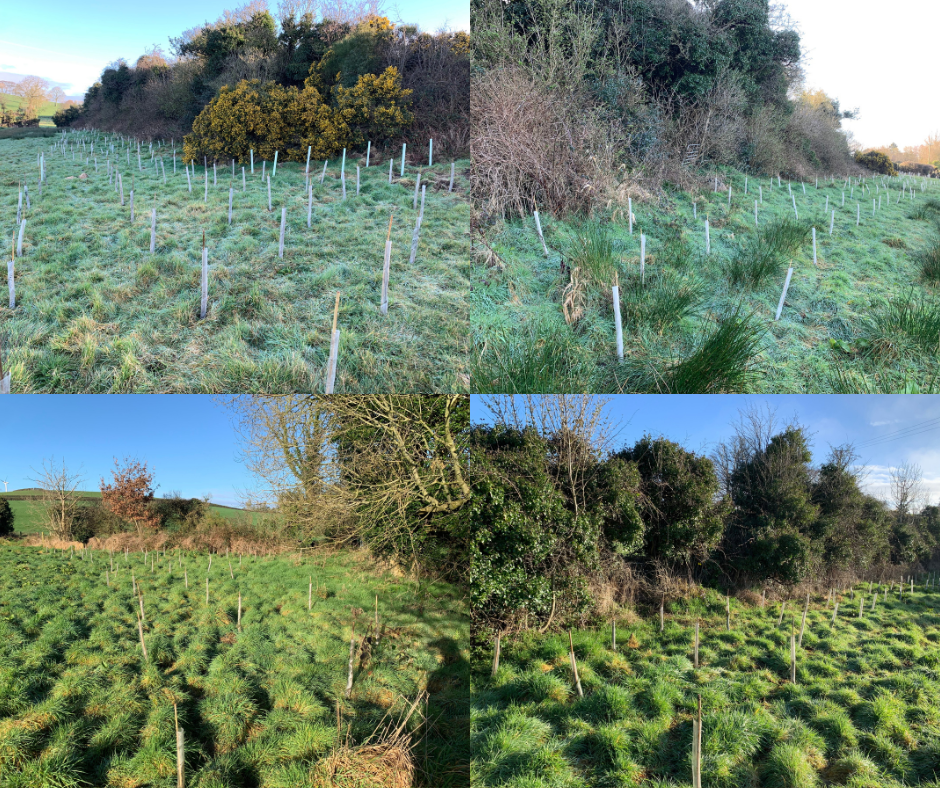Farming Carbon is a company in Northern Ireland that works with businesses to offer tangible Environmental Social and Governance (ESG) solutions that benefit local landowners, and empower farmers to make improvements on their farms. We were delighted to collaborate with Ethical Schoolwear to plant 310 trees on their gorgeous smallholding in County Down.
As a business working in the sustainability solutions sector, we hear it all. Carbon capture machines will solve the climate crisis, or it will be a new technology that hasn’t been made yet.
Rather than wait and hope – we are committed to an amazing, existing, natural carbon capture technology. TREES. We collaborate with landowners who want to plant their ground and help them out. All the trees we work with are native, Irish species which means that they add more in terms of biodiversity and habitat creation. Our other ESG solutions include lessons in primary schools and career seminars for secondary students. The opportunity to work alongside a company committed to prioritising sustainable uniforms for schools was really exciting for Farming Carbon.
Together with Liam from Ethical Schoolwear, we planted a diverse mix of Oak, Scots Pine, Birch, Hazel, Sweet Cherry, Alder and Willow. The last two trees are particularly well suited to the wetter spots of the land. The diverse mix of trees will all grow at different rates, the Cherry will live for around 15 years, while the alder and birch will be around for 4x as long (60 yrs). The Scots Pine will flourish for almost 10x as long (700 years). This has dynamic benefits for the animals, insects and fungi that will live symbiotically with the trees.
Birch and Scots pine planted alongside each other often have a microscopic energy share between their species. In the winter the Scots Pine will “feed” the birch, and in the summer when the birch has a canopy of green leaves and lots more carbon from photosynthesis, the birch will return nutritional value to the Scots Pine back through a mutual fungi on their root systems. This is one of many benefits of planting a multitude of native species together.
The carbon sequestered in the hardwood trees, like an Oak tree averages at 165kg of Carbon per year as well as all of the biodiversity benefits of the collective of trees together. At Farming Carbon we are committed to empowering small businesses in the rural community. We work with farmers to share skills and resources so that we can prove farmland is an essential part of the solution for climate change.
Our tree planting project is a brilliant way to engage farmers across Northern Ireland and have vital conversations about how the industry could be supported to become more sustainable. We are working to develop a sensor system to help farms quantify their soil carbon and other carbon assets on the farm. We hope that as our business grows we will be in a position to microfinance tree planting and biodiversity opportunities like small wildflower sections on farmland and guide farmers through practices to improve the carbon footprint of their farm operations.
If you'd like to find out more and follow Farming Carbon's progress, visit:
@farmingcarbon on Instagram, Twitter, Tiktok & Facebook.
email info@farmingcarbon.co.uk

